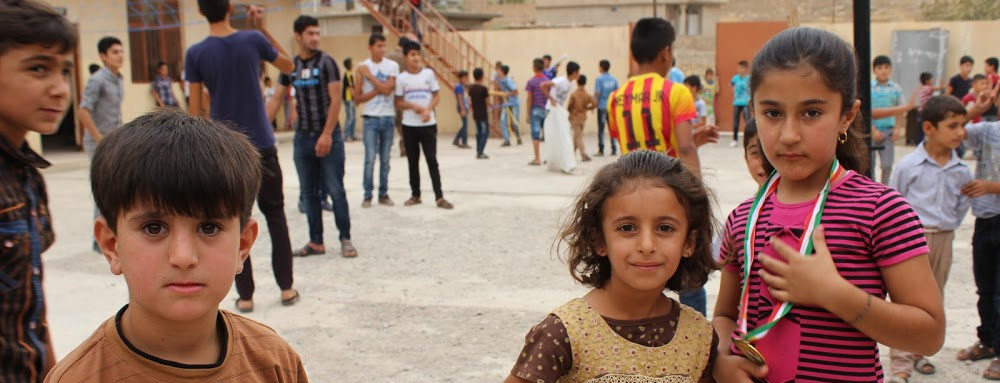At least 30% of people displaced from Mosul will be children. How will People in Need respond to their needs?
Published: Oct 18, 2016 Reading time: 4 minutes Share: Share an articleThe humanitarian outlook for the final months of 2016 in Iraq is incredibly bleak. Already there are over 3.3 million people across Iraq who have been displaced from their homes and hundreds of thousands of families are struggling to survive. By the end of 2016 it is predicted that as many as 12-13 million people across Iraq – over one third of the population - may require some form of humanitarian assistance and the number of displaced persons is expected to increase by as many as 1-2 million.

Right now the greatest humanitarian concern in Iraq is the fallout of the military offensive against Islamic State of Iraq and the Levant (ISIL) in Mosul. The city of Mosul was captured by ISIL in June 2014 and has since served as the group’s de facto capital in Iraq. In Mosul, it is estimated that approximately 1.2-1.5 million people are living under ISIL control.
In order to retake the city from ISIL, Kurdish military forces - Peshmerga, Iraqi Security Forces (ISF) and US-led coalition forces have initiated a major offensive to remove ISIL from the city once and for all.
While military operations have been underway since summer 2014, this most recent campaign, officially announced by Iraqi Prime Minister Haider AL-Abadi on 17 October, marks the beginning of the biggest and most thorough offensive towards Mosul to-date.
Right now, the Iraqi forces and their allies are moving inch by inch towards Mosul, retaking territory from ISIL. As the campaign continues further towards Mosul, 230,000+ are expected to flee from cities and towns in Anbar, Salah-Al-Din, and Ninewa, and up to 660,000 people will be displaced along the Mosul corridor – an area south of the city comprising a number of camps in various towns and cities.
Prior to this latest renewed offensive, approximately 200,000 had already been displaced from their homes. As Iraqi forces and their allies approach Mosul it is possible that the 1.2-1.5 million population of Mosul will also flee, seeking protection and shelter in neighbouring areas.
As ISIL fight to keep hold of the city many civilians will be killed or wounded. Civilians fleeing the area will also be at risk of rape, detention, siege and countless other human rights violations. Civilian infrastructure is also expected to be extensively damaged in areas retaken from ISIL and all areas abandoned by ISIL will be at risk of contamination by booby-traps and improvised explosive devices.
The humanitarian response to the Mosul offensive is likely to be the single largest and most complex response of 2016.
How will PIN respond?
People in Need have devised a preparedness and response strategy with fellow Alliance2015 partners in Iraq.Together, our focus is to meet the most vital emergency needs and prioritize support to people displaced from Mosul. Those fleeing Mosul will be hosted in camps, emergency camps or informal settlements which may include collective centres organized inside schools, or abandoned/unfinished buildings. You can find more information about the strategy here.
“Given People in Need’s extensive experience working in the education sector in northern Iraq, and the fact that children will comprise at least 30% of those fleeing and will be greatly affected by the displacement, we will be supporting displaced children with access to education and child protection services in camps as well as out-of-camps settings in order to provide some stabilizing support for vulnerable children and youth in this tumultuous point in their lives,” says People in Need Country Director in Iraq Maciej Perczynski.
We expect that people will flee their homes with only that which they can carry in their hands. From what People in Need has witnessed amongst displaced families whom we support already both in Iraq and further afield in Syria, people may leave with nothing but the clothes on their back and may not know where they will be going or how long they will have to be on the move. As such, providing shelter and other items such as blankets, cooking sets, mattresses, water containers and hygiene kits will be crucial to their survival and People in Need will be providing these to families living outside of camps. “The upcoming winter will put further stress on those living in camps and various kinds of informal settlements. Therefore we pro-actively plan to provide winterized assistance including items such as blankets and heaters in order to help mitigate the effect of harsh winter temperatures and rainfall on affected families,” says Maciej Perczynski.



